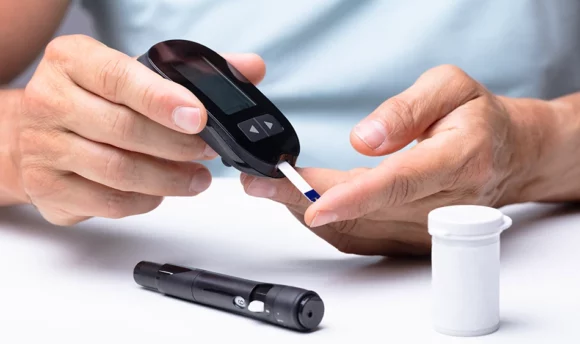How to Tell if You're in Ketosis: 9 Early Signs
So, you have been on a ketogenic diet for a few weeks, and you are wondering how to tell if you’re in ketosis. These are the 9 early signs that you’re in ketosis.

The main goal of getting into a keto diet is to get into ketosis, and when you think you are in ketosis yet you are not, you might fall short of your goals.
A low-carb diet and fat burning are among the hallmarks of a ketogenic diet. They play an essential role in the success of your new way of eating. Maintaining a low-carb diet is simple, but on the contrary, identifying the signs that you are in ketosis can be a bit confusing.
Many changes occur in your body when you start a ketogenic diet, and it is hard to tell whether you are burning ketones for fuel. Fortunately, our guide will show you how to know whether you are in ketosis.
How to Tell if You’re in Ketosis? Look for These 9 Signs
When you are on a keto lifestyle, your main goal is to get your body in a state of nutritional ketosis where you burn fat as your fuel source instead of carbs.
Reaching ketosis can sometimes take up to a week. How will you know that your body has reached the fat-burning state for you to start reaping the health benefits? Below are 9 evident signs of ketosis.
#1 Bad breath and dry mouth
Most people experience bad keto breath and a dry mouth once they reach ketosis. This is primarily due to elevated ketone levels that leave the body through breath and urine.
Acetone is the ketone mainly responsible for the odor, but other ketones such as benzophenone also contribute to keto breath. Though bad breath can be socially awkward, it is a positive sign showing you have started ketosis.
There is no way to eliminate bad breath from ketosis, but some people brush their teeth several times a day and take sugar-free drinks or chew sugar-free gum.
If you chew gum or take sugar-free drinks, check the carb quantities in the label as they might increase your blood sugar levels and reduce your blood ketone levels.
#2 Decreased appetite and hunger
Studies show that ketogenic diet participants experience decreased appetite and hunger by reducing caloric intake and losing weight.
Elevated ketone levels lead to a decreased production of a hormone known as adiponectin, essential for regulating blood sugar levels. This leads to appetite suppression, and a person feels less hunger.
You are likely to eat more proteins than carbs in a ketogenic diet. Protein is a more satiating nutrient, and you will end up fasting longer and experiencing a reduced appetite.
#3 Increased blood ketone levels
One of the evident signs of ketosis is an increase in blood ketone levels and a reduction in blood sugar levels.
One method of measuring ketones is using a blood ketone meter. The ketone meter measures the primary ketones in your bloodstream, and it is the most accurate way of measuring ketosis.
#4 Weight loss
A low-carb diet is very effective for weight loss, and people in ketosis should expect to lose weight. There is rapid weight loss for the first few days, but this is due to a reduction in water weight and stored carbs.
After the initial drop in water weight, the body gradually and consistently loses fat. Fat loss will continue as long as you remain on a calorie deficit.
#5 Better mental focus and energy
A ketogenic diet improves cognitive function, mental focus, and energy levels. The diet initially causes brain fog and headaches, but these symptoms dissipate over time; people on a ketogenic diet report better clarity and alertness in some mental tests.
The mental focus results from balancing neurotransmitters, the chemical substances released at the end of nerve fibers to effect impulse transfer to muscle fibers and other nerve endings.
Balance of neurotransmitters leads to a more robust brain.
#6 Changes in sleep
Insomnia is prevalent during the initial stages of transitioning to a keto diet. However, this situation improves with time.
The primary energy source for the body is carbohydrates, as they give the body a constant glucose supply. However, since a keto diet is low in carbs, it affects the production of serotonin and melatonin, the main hormones involved in sleep.
An increase in ketone levels also signals your kidneys to release electrolytes through pee. Electrolytes such as sodium, potassium, and magnesium are responsible for normal brain functions, and electrolyte deficiencies affect sleep patterns.
As the body gets used to ketosis, the body’s carb addiction dissipates, which eventually improves the quality of sleep.
#7 Fatigue and irritation
People may feel exhausted as they shift to a ketogenic diet; fatigue occurs when the body switches to burning ketones instead of burning glucose for energy. Glucose from carbs gives a quick energy burst compared to fats.
Other reasons for fatigue include dehydration, keto flu, intense exercise, eating low calories, or eating low-quality food.
It is easy to under-eat while on keto. A mild calorie deficit is good for you, but you might unintentionally be going way below your calorie requirements since your appetite is suppressed.
To reduce fatigue on keto, you should stay hydrated, eat more fat, check your carb intake and avoid over-exercising.
#8 Muscle spasms
Ketosis causes dehydration and electrolyte imbalances, leading to muscle cramps and spasms. The electrolyte imbalances affect nerve endings’ electrical messages, thus causing muscle spasms and contractions.
If you are on a ketogenic diet, you should ensure you get enough electrolytes to avoid muscle spasms. You get these electrolytes by eating a balanced diet and staying hydrated.
#9 Excessive thirst
You might feel thirstier than usual while in ketosis. This is a result of water loss from the body.
When you consume carbohydrates in your diet, your pancreas releases insulin to combat the increase in blood sugar levels. In turn, high insulin levels trigger your kidneys to hold on to the water and sodium.
When you lower your carb intake, you eliminate sugar from your diet, causing a drop in insulin levels. Your kidneys, in turn, release the stored water and electrolytes, making you feel thirsty. Listen to your body and drink when you feel thirsty.
What Is Keto?
Keto is short for the ketogenic diet, and it refers to a low-carb and high-fat diet that has numerous health benefits. This diet forces your body to burn body fat rather than carbohydrates, thus causing your body to lose weight.
How does keto work?
When you are on a regular diet, your body typically converts the carbohydrates in your food to glucose. This glucose is transported throughout the body to fuel bodily functions.
A keto diet is generally very low in carbohydrates. The insufficient carbohydrate levels mean that your body does not have sufficient glucose for fuel, and it has to find alternative sources.
With low carbohydrates in your diet, your body goes into fat-burning mode, and your liver converts fat in your body into fatty acids and ketone bodies. Burning ketones provide backup fuel and replace glucose as your body’s primary fuel source.
Keto headache: is it normal?
It is normal to experience a keto headache as you transition to a low-carb diet. The leading causes of a keto headache are low blood sugar levels and dehydration.
When you start a ketogenic diet, your body relies on ketone bodies instead of glucose, and this causes your blood sugar levels to drop drastically. This transition may stress your brain, leading to mental fatigue, brain fog, and headaches.
The other cause of keto headaches is dehydration. People tend to lose water weight first while on keto. This is because they urinate more as they shift to ketosis.
During ketosis, your body depletes glycogen, the stored form of carbs. Glycogen is bound up to water molecules, and when it is used up, it releases the water.
The body also produces less insulin, affecting electrolytes such as potassium and carbon, which play a crucial role in hydration. All these factors collectively lead to keto headaches.
Eating nutritious foods and ensuring proper hydration help alleviate these headaches.
What Is Ketosis?
Ketosis is the metabolic process when your body starts burning fat for energy since it is low on carbohydrates. The liver will start producing ketones, which are then burnt for fuel.
The main aim of ketogenic diets is to induce ketosis for the body to burn more fat. Ketosis boosts weight loss and improves overall health.
How long does it take for your body to go into ketosis?
The time it takes to get into ketosis varies among different people. However, research suggests that it takes about 2 to 4 days to get into a state of ketosis if you only consume 20 to 50 grams of carbs a day.
People who have difficulties getting into ketosis sometimes take exogenous ketones (supplements that induce ketosis). The FDA doesn’t regulate exogenous ketones, and you should talk to your doctor first before taking them.
Benefits of ketosis
There are numerous benefits derived from going on a ketogenic diet. Possible positive effects include weight loss, improved heart health, better skin, and improved blood sugar management.
A ketogenic diet leads to rapid weight loss by boosting metabolism and reducing appetite.
Acne has different causes, but it is directly linked to diet and blood sugar levels for some people. Studies suggest that a ketogenic diet reduces carb consumption, thus alleviating symptoms of acne in some people.
Eating healthy fats such as avocados helps improve heart health by lowering cholesterol levels. A ketogenic diet is also an effective strategy for regulating blood sugar, especially for people with type 2 diabetes.
Ketosis side effects
Ketosis has an extensive range of health benefits, but staying on this diet for too long can have some adverse health effects. Some include kidney stones, fat build-up in the liver, excess protein in the blood, and mineral and vitamin deficiency.
Keto flu is a temporary side effect when one starts a ketogenic diet. The keto flu symptoms vary among people, but most complain of nausea, headaches, constipation, vomiting, and low exercise tolerance.
It takes about a week for these side effects to disappear if one stays strict with a limited carbohydrate intake. Staying hydrated helps treat your keto flu symptoms and enables you to move faster past the discomfort stage.
How Long Is It Safe to Be in Ketosis?
Like any other diet that involves cutting carbs, the keto diet is not very easy to stick to for a long time. This diet has numerous health benefits, but one should not stay on it permanently as it can be very restrictive.
Nutrient deficiencies are possible if you stay in ketosis for too long. If your main goal is to lose weight, you should set clear goals and remain in ketosis until you achieve those goals.
It would help to stick to the diet at least 3–6 months a year, generally referred to as a cyclical keto diet.
If you feel healthier and the keto diet meets all your nutritional requirements, there may be no point in coming off the diet.
A Word From Nutritionist
Your body is used to getting energy from carbohydrates, but ketosis forces your body to get energy from fat sources. This is because the glycogen stores are depleted from the body.
One of the main reasons for entering into a keto diet is weight loss. Other reasons include managing diabetes and helping with epilepsy. People react differently to this diet, but accelerated weight loss is the most common effect.
Other than weight loss, you will notice other signs such as increased blood ketone levels, reduced appetite, and increased mental clarity. A keto diet is good for you in the long term.
Maintaining a balanced diet rich in fruits, vegetables, lean meats, nuts, olive oil, and whole grains is essential for long, healthier, and sustainable results.
Check with your doctor before you start a keto diet to get the hard facts about whether the diet suits you or not. A doctor can help monitor your progress through blood tests and other monitoring techniques.
Conclusion
How to tell if you are in ketosis?
People react differently to a keto diet and experience numerous side effects such as stomach upsets, headaches, fatigue, and insomnia. However, these symptoms dissipate as the body gets used to keto.
There are various ways to determine whether you are in ketosis, but the most accurate way is through measuring ketone levels in the blood.
If you stay consistent with a ketogenic diet, you will experience ketosis and reap the numerous health benefits of continued fat loss.
Leave a comment

















































 Select your language:
Select your language: 









I want to lose weight can you help me helen c my health